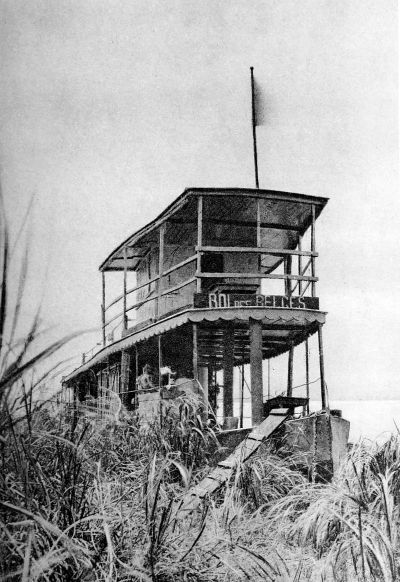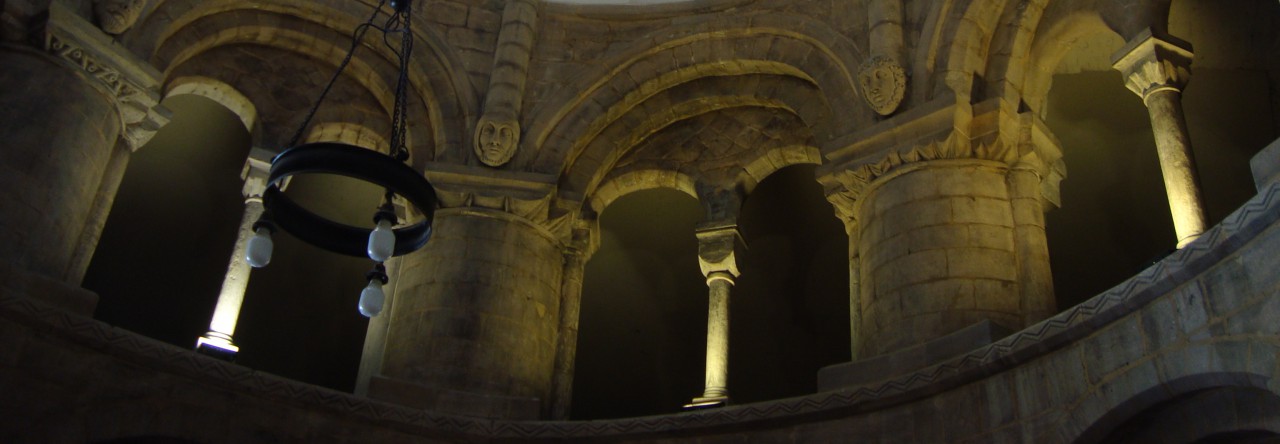![Congo trading steamer c 1890 [Public Domain]](https://calmgrove.wordpress.com/wp-content/uploads/2015/12/congo-trading-steamer-c-1890.jpg?w=640&h=457)
Introduction and Notes by Owen Knowles
Penguin Classics 2007 (1899)
The Dark Continent. Darkest Africa. How often do we still — more than a century later — hear these terms bandied about. Though it’s often assumed that the phrases have racist connotations the original intention seems to be that much of the heart of Africa was still unknown territory as far as Europeans were concerned. And why were they concerned? Because at the root of European imperialist dreams was the drive to expand and exploit, to extract the commercial potential of a region before your rivals. In a way nothing much has changed in the intervening years.
Heart of Darkness is set in the Belgian Congo (later Zaire and now the Democratic Republic of the Congo) at the beginning of the last decade of the 19th century. But the tenebrosity of the title alludes more to the blackness of white men’s hearts than to the interior of Africa. The novella begins, unexpectedly,
aboard a sailing boat on the Thames, between Gravesend and London, just as the sun is setting over the capital and gloom begins to settle over all. This stygian motif which Conrad establishes at the heart of one empire soon transfers itself, via dark Belgian streets and the labyrinthine offices of a private company, to the River Congo under the sway of another European empire. The principal narrator is protagonist Charles Marlow, charged with the captaincy of a river steamer, and his odyssey a thousand miles up the Congo to discover the whereabouts of the mysterious ivory-trader Mr Kurtz is an exploration less of a land than of the pitch-black depths to which the human psyche can plunge.
It’s hard to do this complex book justice in a brief overview. Conrad’s vast sailing experience and qualifications in seamanship led him to take a similar job helping skipper a boat, the Roi des Belges, up the Congo in 1890 — this edition even includes his Congo Diary of part of the trip — and it’s clear that what he observed then in the service of the Societé Anonyme pour le Commerce du Haut-Congo renders Heart of Darkness semi-autobiographical. The cupidity, duplicity and inhumanity of the Society’s agents, effectively local tyrants with little regard or respect for local populations, badly affected Conrad’s emotional balance, resulting in depression which compounded the illnesses he inevitably contracted.
What makes his narrative even more powerful is his sheer literary skill. Dark dealings permeate the storyline, and the reader’s perceptions are obscured by uncertainty. Who exactly is Marlow, playing the Ancient Mariner to the Wedding Guests of his fellow Thames sailors? Why do we feel as uncomfortable as Marlow does when he is interviewed in Brussels for his job in Africa? Should he trust the agents he comes across as he works his way towards the upper reaches of the Congo? Has Kurtz ‘gone native’ or is there something a lot more sinister going on?
Conrad heightens the atmosphere by anticipating the cinematic technique of jump cuts, so that we are unsettled more by what is not described than by what is revealed. As the narrative progresses Marlow’s increasing agitation is indicated by stream-of-consciousness narration, at times with (to us) over-melodramatic reported utterances such as the famous “The horror! The horror!” — perhaps a literal translation of a French idiom, L’horreur! L’horreur!
Conrad focuses on the white men, for these are the individuals with whom he must perforce interact and who have power over him, but we do have odd glimpses of individual Africans, notably the helmsman of the paddleboat but also the ill and exhausted workers who crawl away to die. The author is relatively free of the casual racism that typified most white attitudes of the time, though his is not always the language we would consider acceptable these days. Again, this is very much a masculine novel, with women appearing briefly at the beginning and end of the story, but we may take that as reflecting the demanding conditions and circumstances of the time.
I cannot but be struck by so many resonances. Marlow’s quest to find Kurtz, and the manner of his meeting, is a shadow version of the anticipation attendant on Henry Morton Stanley’s famous expedition to find David Livingstone (1869-71). There is also the search for Sir Henry Curtis’s brother in H Rider Haggard’s King Solomon’s Mines, published five years before Conrad’s own African journey up the Congo to find the company agent Georges-Antoine Klein. And I’m forcefully struck by Heart of Darkness perhaps echoed in spirit by The Lord of the Rings — the difficult journey to a dangerous place, with a dark figure and his dominion as the goal.

This edition has most of what an immersive reader would like to more fully appreciate this novella. There is, helpfully, a map of Conrad’s journey upriver which matches the fictional route. Both the fiction and the corresponding diary are fully edited and annotated (by Owen Knowles and Robert Hampson respectively), with introductions, a chronology of Conrad’s life and a glossary of nautical terms.
My principal criterion for a good read is whether I would want to reread it, and Heart of Darkness fulfils that brief; but, given its harrowing subject matter, I shall leave that re-acquaintance for when I’m feeling strong again.
* * * * *
In my 2015 Reading Challenge this counts as a book I should have read in school but didn’t. Don’t ask how I managed to avoid even skimming this, as I have no idea how I got away with it. I certainly wouldn’t have appreciated it as much as a teenager!

I do love this book. It can also be added, that it is a journey into the darkess of human soul. That butal Mr Hyde that emerges once you are freed from those conventions of civil society . At the beginning Kurtz seems to embody all the idealism of the civilizing mission of Kipling’s ” White man’s burden” , but once in Congo, Mr Hyde prevails , showing thus the hypocrisy and the horror of that burden and his own soul. Great post Chris. 🙋
LikeLiked by 1 person
Thank you, Stefy, and yours are wonderfully enlightening comments, revealing yet other strata of analogues and meanings. It’s not the book I imagined it might be, it’s different but better, and I can see why it’s rated so highly, why it merits its praise and its Modernist accolade. Thank you again for your insights.
LikeLike
I return to Heart of Darkness every five years or so. Loved Conrad as a young man and then went off him somewhat before finding true greatness in him in my later years. I have always loved this book; dark and challenging as it is. Fantastic photograph. I never envisaged the boat looking like that. Great post.
LikeLiked by 1 person
Thanks, Simon, appreciate it. I’m looking forward to more Conrad next year now that I can see what all the fuss was about! The ‘Rois des Belges’ photo fitted in more the narrative but I liked the less topheavy Huntley & Palmer’s steamer more!
LikeLike
I cannot explain why, but in my early teens I fell in love with “Apocalypse Now”. Perhaps it was due to my teen crush on Martin Sheen, or maybe because there had never been a war movie quite like it.
I decided to read Conrad’s book a few years ago, and was instantly struck by his writing; so dark yet so enlightening. I may have read it in one sitting. I went back to it, this time to savor his style and to see if I could unwrap Marlow, as in my mind he or his intentions were more mysterious than Kurtz’s. I’m drawn to stories that are told by unreliable narrators, and this is how I saw Marlow. The book remains one of my favorite pieces of literature.
LikeLiked by 1 person
To my chagrin I’ve never got round to watching Apocalypse Now!, but having now read the Conrad I shall definitely give it a go. Marlow an unreliable narrator? Certainly he is selective in what he chooses to reveal, leaving much obscure (part of the darkness thread perhaps). Such a rich complex novel: I keep being struck by one aspect or another, by a parallel or paradox, and eager to reread it after a suitable time lapse
LikeLike
Thanks for this reminder, Chris, of Conrad’s still astonishing book. Perhaps it’s time to move it into the re-read stack.
Did you know that Stanley, after finding Livingstone, began working for King Leopold in the Belgian Congo? And that Mark Twain was among the many protesting Leopold’s tactics in the so-called Congo Free State? “King Leopold’s Ghost”, Adam Hochschild’s study of Leopold’s Congolese fiefdom, made me admire Conrad’s work even more. And as a final connection, WG Sebald in “The Rings of Saturn” briefly focuses his wandering lens on a meeting between Conrad and Roger Casement around 1890 — in the Belgian Congo.
LikeLike
Thanks, Lizzie, Heart of Darkness is definitely a title I shall be hanging on to for my own reread. What you say about Stanley rings a bell, Lizzie, though I didn’t know that about Mark Twain, and Hochschild’s study sounds an essential, if disturbing, read. The text of Conrad’s Congo Diary, included in this Penguin Classics edition, certainly mentions meeting Casement in amongst the first few entries, and in approving terms too.
LikeLiked by 1 person
I may have to upgrade my copy to Penguin Classics, to get my eyes on the Congo Diary.
LikeLiked by 1 person
Worth it, I think, not just for the inclusion of the diary (though it doesn’t cover his whole trip) but also for the informative introductions and extensive notes.
LikeLiked by 1 person
Great Post
LikeLike
Thanks!
LikeLiked by 1 person
welcome
LikeLike
Chris, I’ve bookmarked this for when I’ve steeled myself to try HoD again; thanks for the link to it 🙂 Plenty here to weigh against my own visceral first responses. Perhaps one day, a second reading will prove fruitful.
LikeLiked by 1 person
No doubt it will be a different book on a reread, Sandra; especially as pretty much all the above comments seem to encourage a re-evaluation!
LikeLiked by 1 person
Exactly. I am much encouraged!
LikeLiked by 1 person
😊
LikeLike